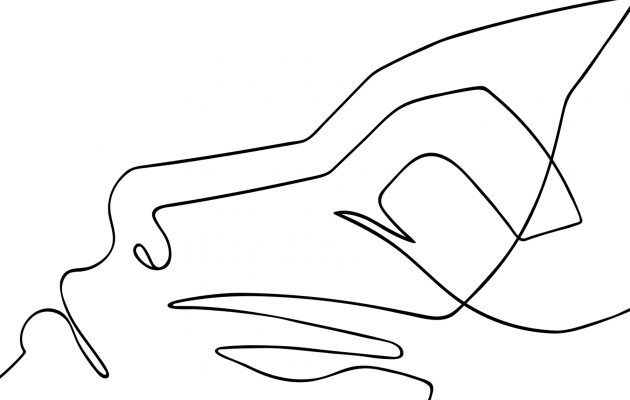Engaging Questions: Teaching Secondary Philosophy
Newington College Centre for Critical Thinking & Ethics and Philosophy in Schools NSW present a day conference for teachers of Stage 5 & Stage 6 Philosophy
Led by experienced classroom practitioners, these practical workshops are for anyone teaching, or interested in teaching, Philosophy in a secondary school setting. Whether you are teaching elective courses for Stage 5 or 6 or providing academic extension outside the standard curriculum, these workshops will provide accessible introductions to the key areas of Philosophy, as well as classroom activities and resources.
WHEN: Thursday 30 March
COST: This event is not for profit. There is a conference fee of $30 to cover the cost of catering.
BOOKINGS: via Humanitix by 27 March
Knowing (Britta Jensen)
This session will focus on the questions: Are we born with knowledge? and What role do reason and experience play in acquiring knowledge?
Views from different thinkers from the history of Western Philosophy will be explored, with a focus on the claims put forward by Rationalists (Plato, Descartes) and Empiricists (Aristotle, Locke and others). First language acquisition will present a case study.
Freedom and the Limits of Government (Jeremy Hall)
John Stuart Mill’s small classic, On Liberty, is one of the great works of political philosophy. The arguments are as challenging and provocative today as they were in 1859. Having introduced the famous ‘harm principle’, this session will focus on Mill’s famous arguments for freedom of thought and expression.
These ideas will be tested against some contemporary examples, such as hate speech and Holocaust denial. Do we need to revise our thoughts about free speech because of the technological and social changes brought about by the Internet?
Human Nature: Why does it matter? (Dylan Bartlett)
Are we to be seen as hairless bipeds? Created in the image of God? Savages who need taming? A little lower than the angels? The most basic question in philosophy is this: What kind of a being am I? Your answer to this question about human nature will profoundly affect how you see yourself, how you see others, and how you live.
This session will introduce some of the most influential theories of human nature and their implications, particularly for Ethics and Political Philosophy
How to establish a culture where inquiry in the classroom is comfortable and expected (Greg Henshaw)
One of the greatest challenges to teachers who rely on their students learning to question is getting them to mistrust their own assumptions on reality. We are surrounded by magic and illusion and our senses deceive us on a daily basis and yet what we claim to know far exceeds the wise Socratic claim to ‘know nothing’. Once students accept ‘the more we learn the less we know’ as one of the basic axioms of their personal philosophy then we can begin to inquire without the hindrance of ego and self-delusion.
Ethics without Borders: Responding to Moral Relativism (Luke Giles)
‘Morality is a convenient term for socially approved habits.’ So said the American anthropologist, Ruth Benedict. Was she right and, if so, what are the implications? This session will examine the arguments for and against moral relativism. In a classroom setting, this is a great way of exploring some of the most difficult questions in Ethics: Are there moral absolutes? and What is the source of moral authority?
What would happen if everyone stopped believing in free will? (Andrew Costantino)
In a compelling TED talk, philosopher Gregg Caruso encourages his audience to consider what would happen if people became more sceptical about the idea of free will. In this session we will take up Caruso’s challenge and utilise a number of thought experiments to examine arguments, draw distinctions and test implications of different claims about free will.
Conference Organisers
Dr Britta Jensen is Co-director of the Centre for Critical Thinking and Ethics at Newington College, President of the Philosophy in Schools Association of NSW, and a K-12 philosophy & IBDP teacher. A FAPSA Philosopher/Teacher Educator, Britta taught Philosophy at North Sydney Girls High School, delivering the school-developed program that formed the basis of the current DET Stage 5 course. Thereafter, while Philosopher in Residence at International Grammar School, she designed and launched a bespoke four-year Philosophy program. Britta works to build teacher capacity with Philosophy in Schools pedagogy with colleagues from all sectors, K-12. The Association maintains a network for teachers of Philosophy.a language and how we come to know a (first) language. She has taught secondary philosophy in public and independent NSW schools.
Dr Jeremy Hall is Head of Philosophy and Religious Studies (PRS) at Newington College and Co-director of the Centre for Critical Thinking and Ethics. He is responsible for the core PRS curriculum at Newington, as well as IB Theory of Knowledge and Philosophy. Previously Head of Philosophy at Hutchesons’ Grammar School, Glasgow, Jeremy was particularly involved in the development of Philosophy as a subject in Scottish schools. He was an examiner for the Scottish Qualifications Authority and a member of the advisory group which produced the first Scottish Higher in Philosophy. Jeremy is Founding Editor of Dialogue and has led professional development courses for teachers in the UK and Australia.

